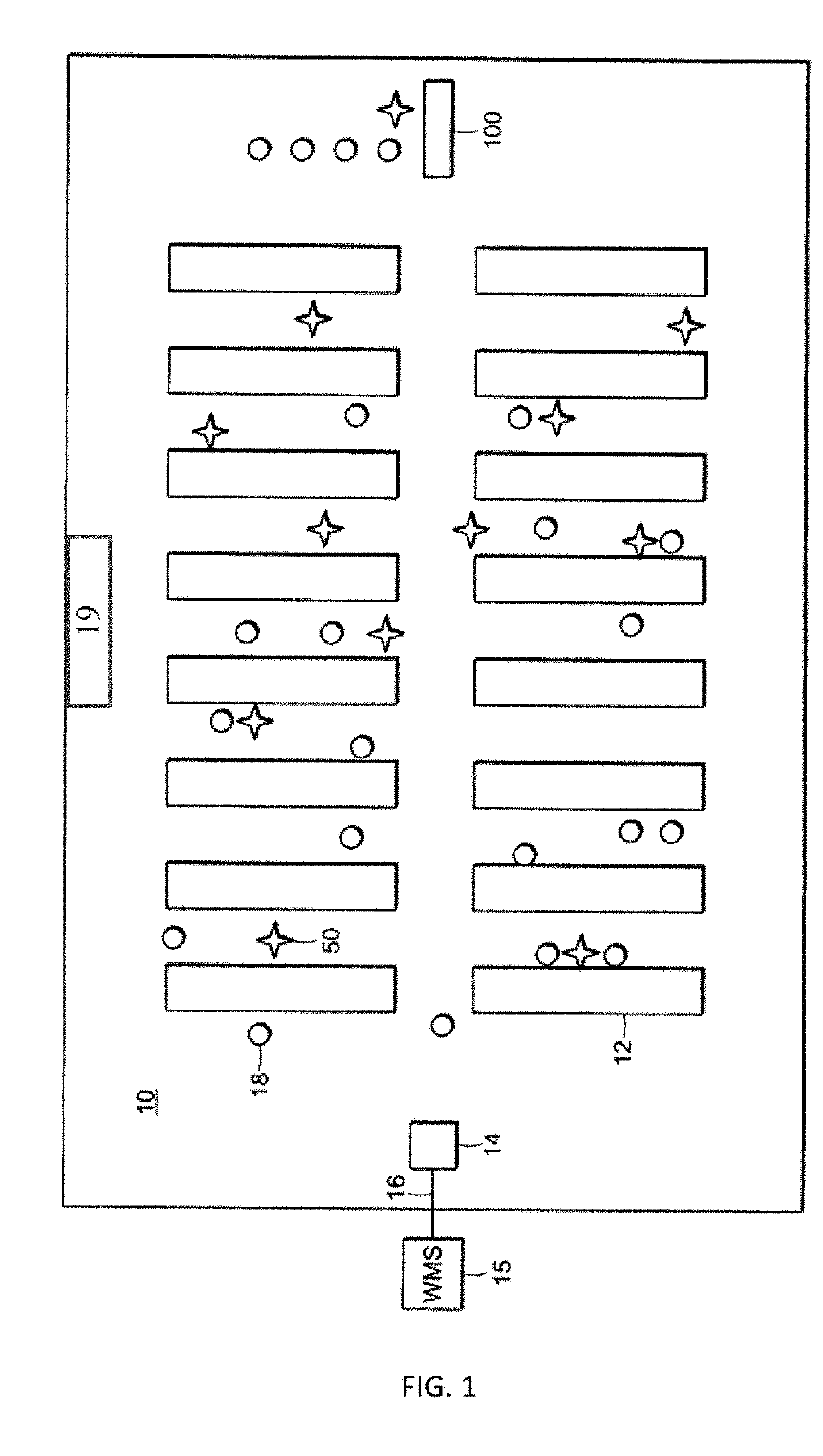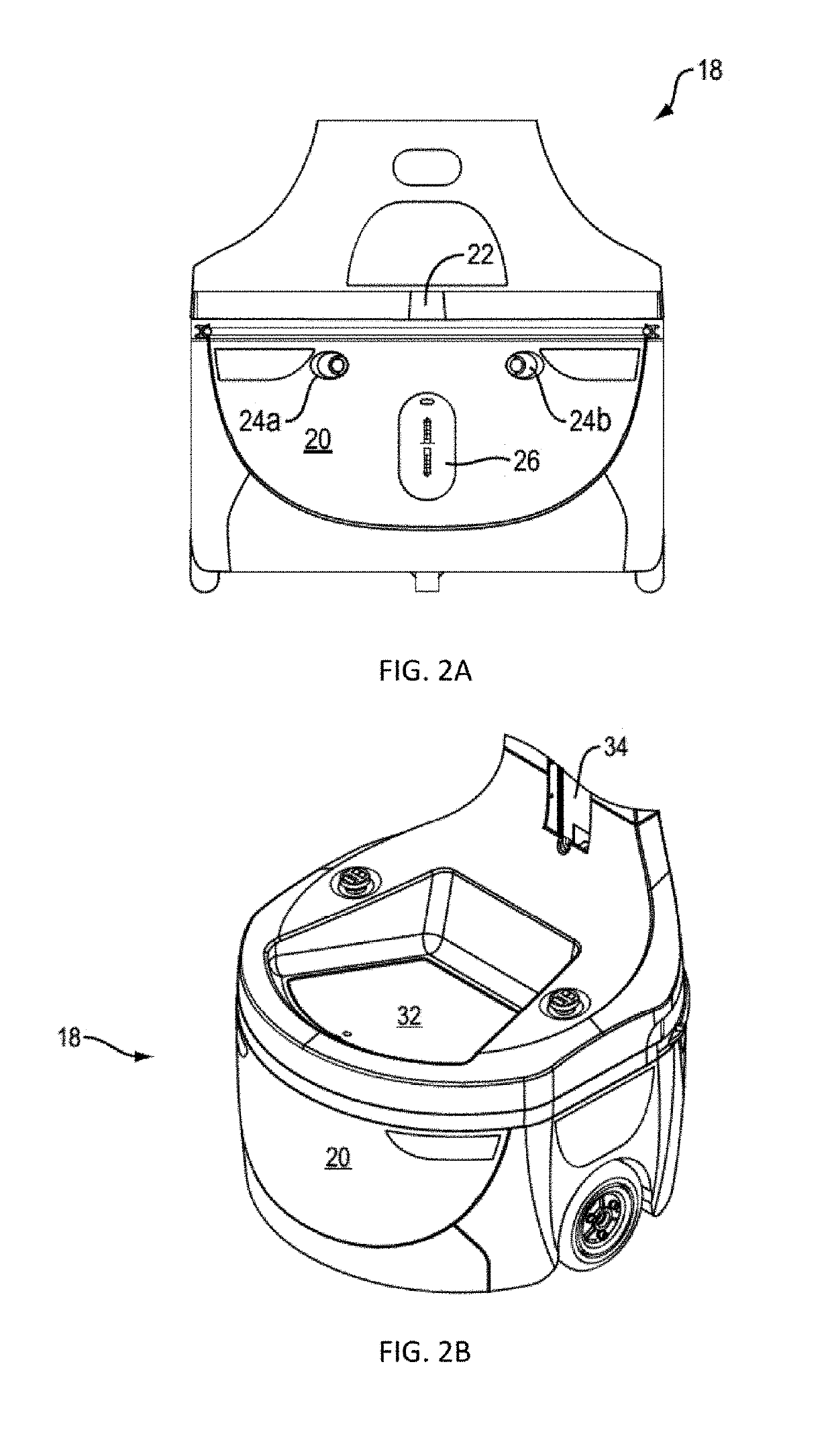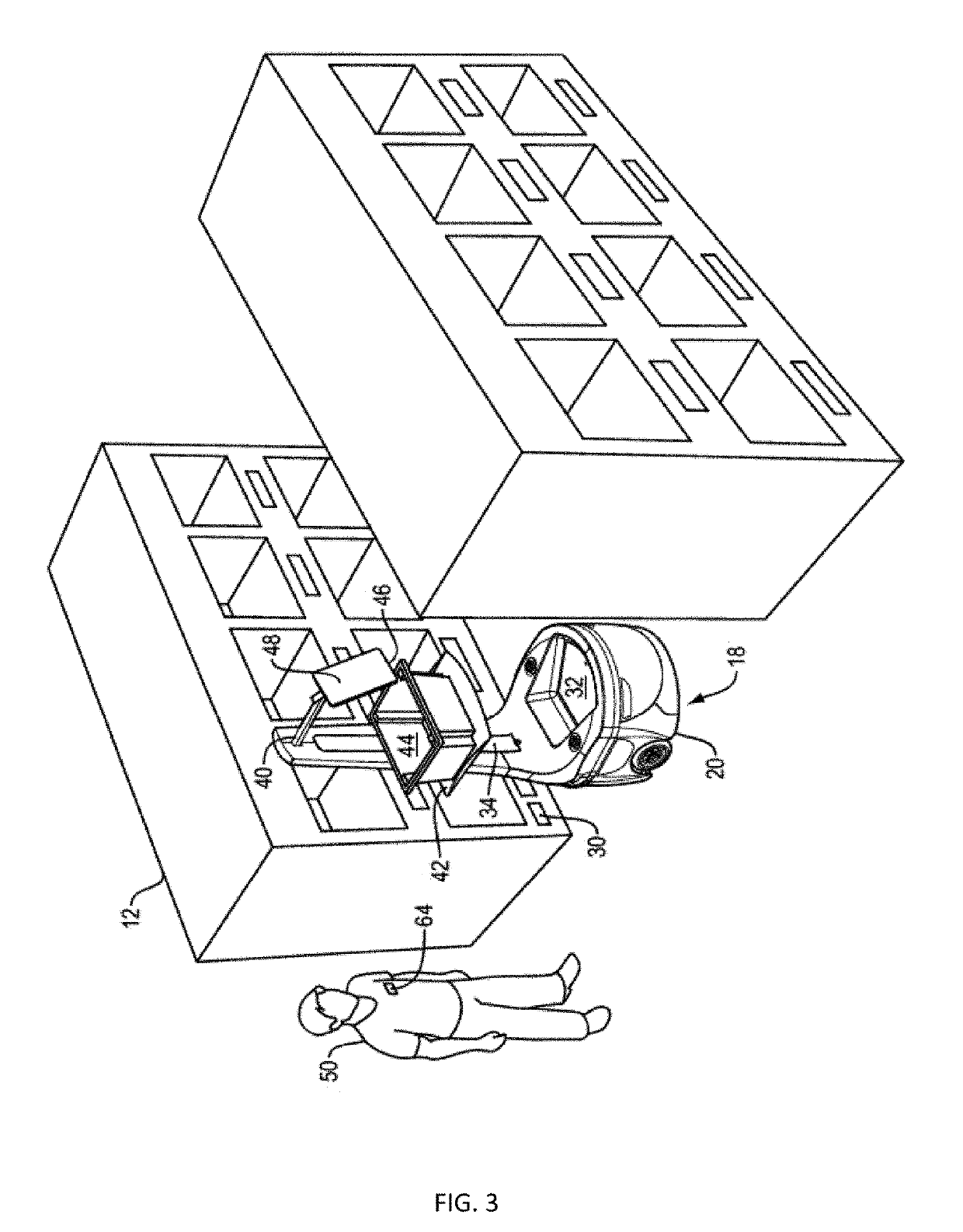Dynamic window approach using optimal reciprocal collision avoidance cost-critic
- Summary
- Abstract
- Description
- Claims
- Application Information
AI Technical Summary
Benefits of technology
Problems solved by technology
Method used
Image
Examples
Embodiment Construction
[0041]The invention described herein is directed to methods and systems for use with an autonomous or semi-autonomous robot for improved navigation of the robot from a current location to a target location along its “goal path” within an environment containing obstacles and free space. Specifically, the methods and systems of the present invention provide a computationally efficient improvement over the prior art for accurately determining the next instantaneous velocity to apply to the robot's propulsion control using a combination of constraint-based obstacle avoidance methods.
[0042]The disclosure and the various features and advantageous details thereof are explained more fully with reference to the non-limiting embodiments and examples that are described and / or illustrated in the accompanying drawings and detailed in the following description. It should be noted that the features illustrated in the drawings are not necessarily drawn to scale, and features of one embodiment may b...
PUM
 Login to View More
Login to View More Abstract
Description
Claims
Application Information
 Login to View More
Login to View More - R&D
- Intellectual Property
- Life Sciences
- Materials
- Tech Scout
- Unparalleled Data Quality
- Higher Quality Content
- 60% Fewer Hallucinations
Browse by: Latest US Patents, China's latest patents, Technical Efficacy Thesaurus, Application Domain, Technology Topic, Popular Technical Reports.
© 2025 PatSnap. All rights reserved.Legal|Privacy policy|Modern Slavery Act Transparency Statement|Sitemap|About US| Contact US: help@patsnap.com



